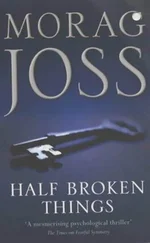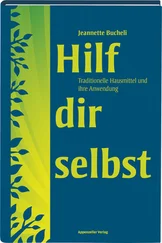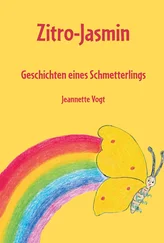Mom’s father was a miner who had struck gold north of San Francisco and became fairly prosperous. Although her family lived in mining boom towns, Mom-whose maiden name was Daisy Mae Peacock- was raised in an atmosphere of gentility. She had soft white skin that was easily sunburned and bruised. When she was a child, her mother made her wear a linen mask if she had to spend any time in the sun, tying it to the yellow curls on the side of her face. In west Texas, Mom always wore a hat and gloves and a veil over her face when she went outdoors, which she did as seldom as possible.
Mom kept up the dugout, but she refused to do chores like toting water or carrying firewood. “Your mother’s a lady,” Dad would say by way of explaining her disdain for manual labor. Dad did most of the outdoor work with the help of our hand, Apache. Apache wasn’t really an Indian, but he’d been captured by the Apaches when he was six, and they kept him until he was a young man, when the U.S. Cavalry-with Dad’s pa serving as a scout-raided the camp and Apache ran out yelling, “Soy blanco! Soy blanco!”
Apache had gone home with Dad’s pa and lived with the family ever since. By now Apache was an old man, with a white beard so long that he tucked it in his pants. Apache was a loner and sometimes spent hours staring at the horizon or the barn wall, and he’d also disappear into the range now and then for days at a time, but he always came back. Folks considered Apache a little peculiar, but that’s what they also thought of Dad, and the two of them got along just fine.
To cook and wash, Mom had the help of our servant girl, Lupe, who had gotten pregnant and was forced to leave her village outside Juárez after the baby was born because she had brought shame on the family and no one would marry her. She was small and a little barrel-shaped and even more devoutly Catholic than Mom. Buster called her “Loopy,” but I liked Lupe. Although her parents had taken her baby from her and she slept on a Navajo blanket on the dugout floor, Lupe never felt sorry for herself, and that was something I decided I admired most in people.
Even with Lupe helping her out, Mom didn’t really care for life on Salt Draw. She hadn’t bargained for it. Mom thought she’d married well when she took Adam Casey as her husband, despite his limp and speech impediment. Dad’s pa had come over from Ireland during a potato blight, joined the Second Dragoons-one of the first cavalry units of the U.S. Army-where he served under Colonel Robert E. Lee, and was stationed on the Texas frontier, fighting Comanches, Apaches, and Kiowa. After leaving the army, he took up ranching, first in Texas, then in the Hondo Valley, and by the time he was killed, he had one of the biggest herds in the area.
Robert Casey was shot down as he walked along the main street of Lincoln, New Mexico. One version of the story held that he and the man who killed him had disagreed over an eight-dollar debt. The murderer’s hanging was talked about for years in the valley because, once he’d been hanged, declared dead, cut down, and put in his pine box, people heard him moving around, so they took him out and strung him up again.
After Robert Casey’s death, his children started arguing over how to split up the herd, which fostered bad blood that lasted for the rest of Dad’s life. Dad inherited the Hondo Valley spread, but he felt his elder brother, who’d taken the herd to Texas, had cheated him out of his share, and he was constantly filing lawsuits and appeals. He continued the campaign even after moving to west Texas, and he was also battling away with the other ranchers in the Hondo Valley, traveling back to New Mexico to lodge an endless stream of claims and counterclaims.
One thing about Dad was that he had a terrible temper, and he usually returned from these trips trembling with rage. Part of it was his Irish blood, and part of it was his impatience with folks who had trouble understanding what he said. He felt those people thought he was a lamebrain and were always trying to cheat him, whether it was his brothers and their lawyers, traveling merchants, or half-breed-horse traders. He’d start sputtering and cursing, and from time to time, he’d become so incensed that he’d pull out his pistol and plug away at things, aiming to miss people-most of the time.
Once he got into an argument with a tinker who overcharged to repair the kettle. When the tinker started to mock the way he talked, Dad ran inside to get his guns, but Lupe had seen what was coming and hidden them in her Navajo blanket. Dad worked himself into a lather, hollering about his missing guns, but I was convinced Lupe saved that tinker’s life. And probably Dad’s as well, since if he’d killed the tinker, he might have ended up swinging, hanged like the man who’d shot his pa.
LIFE WOULD BE EASIER,Dad kept saying, once we got our due. But we were only going to get it by fighting for it. Dad was all caught up in his lawsuits, but for the rest of us, the constant fight on Salt Draw was the one against the elements. The flash flood that sent Buster, Helen, and me up the cottonwood wasn’t the only one that almost did us in. Floods were pretty common in that part of Texas-you could count on one every couple of years-and when I was eight, we were hit by another big one. Dad was away in Austin filing another claim about his inheritance when one night Salt Draw overflowed and poured into our dugout. The sound of thunder awoke me, and when I got up, my feet sank into muddy water up to my ankles. Mom took Helen and Buster to high ground to pray, but I stayed behind with Apache and Lupe. We barricaded the door with the rug and started bailing the water out the window. Mom came back and begged us to go pray with her on the hilltop.
“To heck with praying!” I shouted. “Bail, dammit, bail!”
Mom looked mortified. I could tell she thought I’d probably doomed us all with my blasphemy, and I was a little shocked at it myself, but with the water rising so fast, the situation was dire. We had lit the kerosene lamp, and we could see that the walls of the dugout were beginning to sag inward. If Mom had pitched in and helped, there was a chance we might have been able to save the dugout-not a good chance, but a fighting chance. Apache and Lupe and I couldn’t do it on our own, though, and when the ceiling started to cave, we grabbed Mom’s walnut headboard and pulled it through the door just as the dugout collapsed in on itself, burying everything.
Afterward, I was pretty aggravated with Mom. She kept saying that the flood was God’s will and we had to submit to it. But I didn’t see things that way. Submitting seemed to me a lot like giving up. If God gave us the strength to bail-the gumption to try to save ourselves- isn’t that what he wanted us to do?
* * *
But the flood turned out to be a blessing in disguise. It was all too much for that tenderfoot, Mr. McClurg, who lived up the draw in a two-room wooden house that he had built with timber he carted in from New Mexico. The flood washed away Mr. McClurg’s foundation, and the walls fell apart. He said he’d had it with this godforsaken part of the world and decided to return to Cleveland. As soon as Dad got home from Austin, he had us all jump in the wagon and-quickly, before anyone else in High Lonesome got the same idea-we drove over to scavenge Mr. McClurg’s lumber. We took everything: siding, rafters, beams, door frames, floorboards. By the end of the summer, we had built ourselves a brand-new wooden house, and after we whitewashed it, you almost couldn’t tell that it had been patched together with someone else’s old wood.
As we all stood there admiring our house the day we finished it, Mom turned to me and said, “Now, wasn’t that flood God’s will?”
Читать дальше









